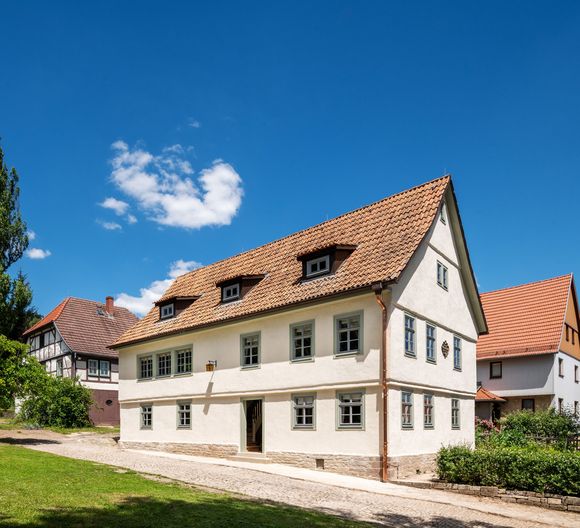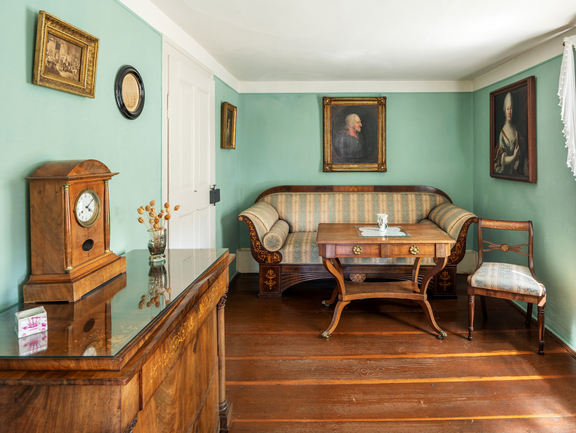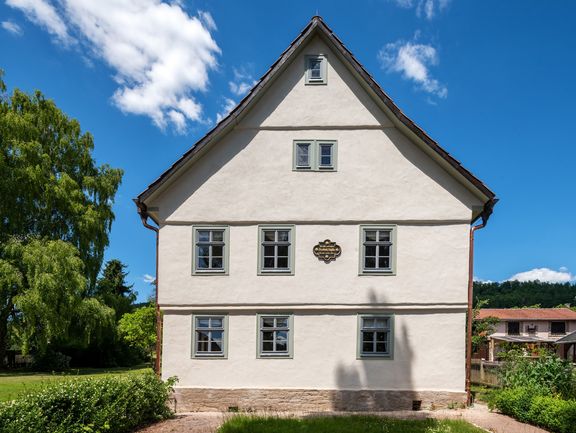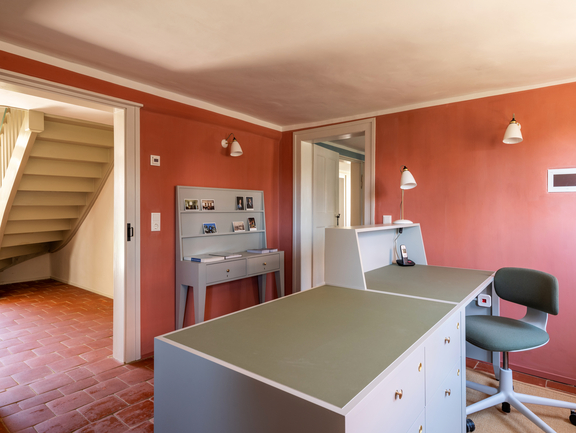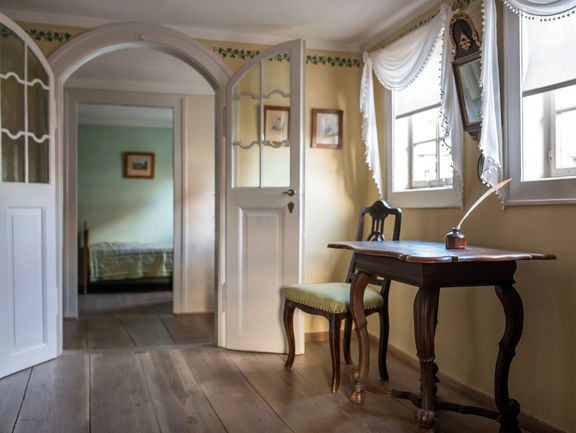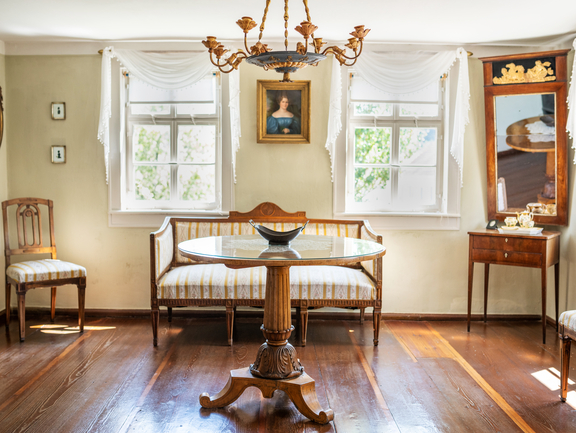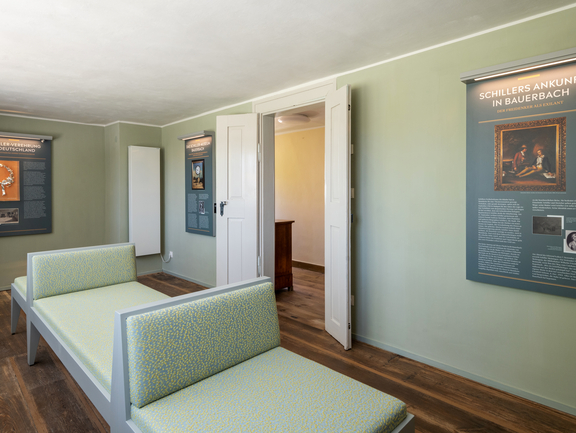Projects of the Klassik Stiftung Weimar are funded by the European Regional Development Fund (ERDF) and the Free State of Thuringia, represented by the State Chancellery of Thuringia, Department of Culture and the Arts.
„Finally, I am here, happy and cheerful […] no longer do any needs distress me.“
Schiller on 8 December 1782 in Bauerbach to his childhood friend Andreas Streicher
Friedrich Schiller arrived in Bauerbach near Meiningen at the beginning of December 1782 after fleeing from Stuttgart. Henriette von Wolzogen, the mother of a student friend of his, offered the poet asylum. This is where Schiller wrote his famous tragedy “Intrigue and Love”, originally titled “Louise Millerin”, of which the last existing manuscript is on display in the exhibition.
Opening hours
Closed today
open again
Address
Friedrich-Schiller-Straße 1
98631 Grabfeld OT Bauerbach
show on Google-Maps
Tickets
Adults
4.00 €
Reduced
3.00 €
Pupils (16-20 years)
1.00 €
Preise ab 21. März 2026:
Erw. 4 €
erm. 3 €
Schüler*in 1 €
Children up to 16 years free
- Rollator access possible
History
The Bauerbach manor provided Schiller refuge from 7 December 1782 to 24 July 1783. Henriette von Wolzogen allowed Schiller to lodge in three rooms on the upper floor of her house. By 1847 the poet’s former workroom and bedroom had been turned into a private memorial site. On the occasion of the 100th anniversary of his death in 1905, the rooms were opened to visitors on a regular basis. In 1934 the national foundation “Schiller in Bauerbach” purchased the manor and converted the so-called “Wolzogen Rooms” into a museum.
The building had belonged to the predecessor institution of the Klassik Stiftung Weimar since 1941 and underwent extensive renovation in 1995. A two-phase modernisation and renovation project was completed in June 2020. The first phase focused on safeguarding and repairing the half-timbered structure and restoring the plaster facade, and the second aimed to improve visitor services, including modernising and redesigning the service and museum areas in the manor. The measures included the installation of handicapped accessible doors and ramps for disabled visitors and families with baby carriages. Inside the museum, visitors can listen to a new audio play with accompanying visuals to learn more about the museum before the tour. The museum is operated by the Schillerverein Bauerbach on behalf of the Klassik Stiftung Weimar.

